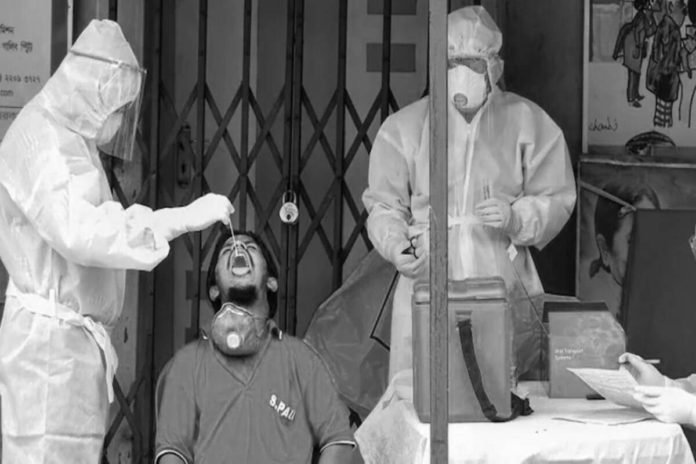Mumbai on Tuesday reported 10,860 new Covid-19 cases and two fatalities. With the fresh infections and deaths reported, the number of active cases rose to 47,476 and the toll stood at 16,381. As per the data provided by the city health department, 89 per cent patients are asymptomatic.
Mumbai Mayor Kishori Pednekar said if the daily Covid-19 cases here cross the 20,000-mark, a lockdown will be imposed in the city as per the Union government’s rules.
Talking to reporters at her office in the Brihanmumbai Municipal Corporation (BMC) headquarters, Pednekar suggested that citizens wear triple-layer masks while travelling in public buses and local trains. She also appealed to them to get vaccinated at the earliest and follow all Covid-19-related standard operating procedures.
Meanwhile, India reported 37,379 new Covid-19 cases in the past 24 hours, the health ministry said on Tuesday, the most since early September as the Omicron coronavirus variant overtakes Delta in places such as the capital New Delhi. Deaths rose by 124 to reach a total of 482,017. Total infections stand at 34.96 million.
More evidence is emerging that the Omicron coronavirus variant is affecting the upper respiratory tract, causing milder symptoms than previous variants, a World Health Organization official said on Tuesday.
“We are seeing more and more studies pointing out that Omicron is infecting the upper part of the body. Unlike the other ones, that could cause severe pneumonia,” WHO Incident Manager Abdi Mahamud told Geneva-based journalists, saying it could be “good news”. However, he added that Omicron’s high transmissibility means it will become dominant within weeks in many places, posing a threat in countries where a high portion of the population remains unvaccinated.
His remarks on the reduced risks of severe disease chime with other data including a study from South Africa which was one of the first countries where Omicron was detected. However, Mahamud also sounded a note of caution, calling South Africa an “outlier” since it has a young population among other factors.
More about Omicron
The Omicron variant has been called a variant of concern by WHO based on studies that shows it has several mutations.
Still a lot of research is underway to evaluate its transmissibility, severity and reinfection risk.
The Omicron variant has been detected in several regions of the world. WHO reports that the likelihood of the Omicron variant spreading further globally is high.
It is not currently known if the Omicron variant is more or less severe than other strains of COVID-19, including Delta. Studies are ongoing and this information will be updated as it becomes available.
It is not yet clear whether Omicron can spread more easily from person to person compared to other variants, such as Delta.
However, being vaccinated and taking precautions such as avoiding crowded spaces, keeping your distance from others and wearing a mask are critical in helping to prevent the spread of COVID-19, and we know these actions have been effective against other variants.
Researchers are looking into any potential impact the Omicron variant has on the effectiveness of COVID-19 vaccines. Although information is still limited, WHO believes it is a reasonable assumption that the currently available vaccines offer some protection against severe disease and death.
It is also important to be vaccinated to protect against the other widely circulating variants, such as the Delta one. When it’s your turn, make sure to get vaccinated. If your vaccination involves two doses, it’s important to receive both in order to have the maximum protection.
According to WHO, early evidence suggests that people who have previously had COVID-19 could be reinfected more easily with Omicron, in comparison to other variants of concern. Information is still limited though and we will share updates as it becomes available.
Source: UNICEFRead more Health News
Latest update Omicron

